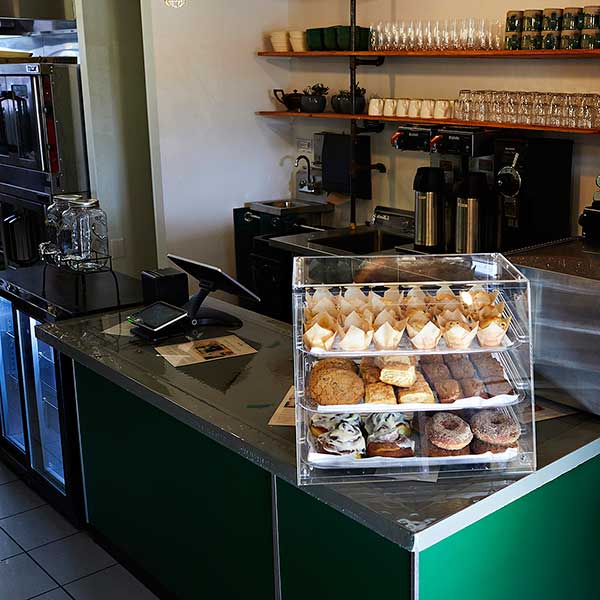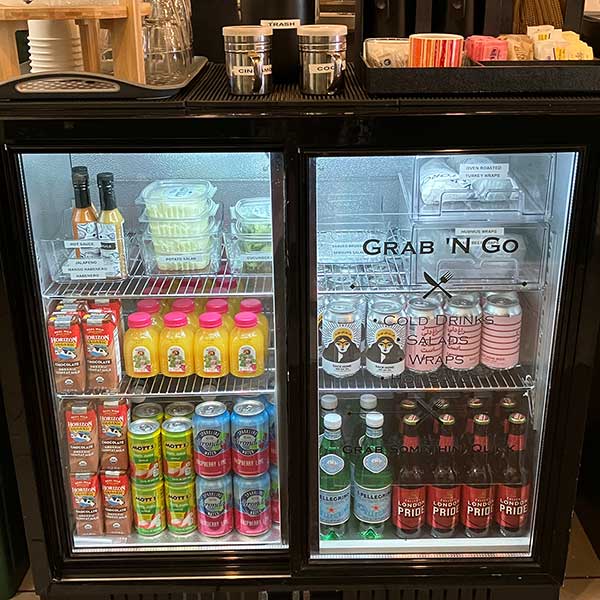Nonprofit Emma’s Torch trains refugees for careers in the food industry.
Imagine arriving in the United States as a refugee, asylee, or a survivor of human trafficking. There’s both hope and hardship. While there is the promise of safety and a new life, there are also language barriers, stressors in finding stability in housing and employment, and a lack of access to basic resources like medical and child care.
This is where Emma’s Torch, a non-profit social enterprise, steps in. Working with those who are coming to the DC area for a second chance, Emma’s Torch offers in-depth culinary training and education in employability and empowerment. Their goal is to give students a sense of confidence and self-worth that will prepare them to enter the workforce. Emma’s Torch students don’t just learn how to earn a paycheck — they find a place in a new community.
Through Emma’s Torch, students get experience both in the classroom and on the job, working in the Emma’s Torch cafes and through the catering business. Getting experience in the cafe not only helps students work on their culinary talents, but it also provides practice in English and customer service skills. Starting up a new cafe requires an investment, however, and, in 2023, the Woodridge location of Emma’s Torch was awarded a Community Building Block (CBB) grant to outfit their new cafe.
The team at Emma’s Torch used their CBB grant to give the space a warm, inviting look, similar to any hip cafe where you’d grab a quick bite. With paintings, tables, hardware, housewares, books, and even an under counter fridge, the cafe became a welcoming place to both work and visit. There was even a fun DIY using a salvage piece — the countertop was made from doors from Community Forklift. They were cut and resin was added to the top to create a smooth, cafe-ready finish.
“The Community Forklift team was extremely knowledgeable and kind, helping us create a beautiful space for dining. As a non-profit, there is not always a lot of money available. A program like CBB truly helps us be able to do what we do and use our resources to help our students achieve their career goals,” says April Hayes, Front of House Manager at Emma’s Torch.
Thanks to their experience in the cafe, Emma’s Torch places students in jobs across the region, giving them an opportunity towards financial stability and autonomy in a new country. “After entering our program, often at a point of vulnerability, we have seen our students go on to use their financial freedom to move out of the shelter system, secure prestigious promotions, buy homes, and even open their own food businesses. Watching our students grow from being unsure of themselves and their skills, to advocating for themselves in the workplace and beyond is exactly why we do this work,” says Alix Haber, DC Area Director and Chief Operating Officer.
CBB mini-grants, like the one Emma’s Torch received, allow community groups and nonprofits to use warehouse credit towards a wide range of projects that make an impact in the community. If your organization is interested in applying for a CBB grant, you can find more information here. We would love to hear about the incredible work that you’re doing.
And, if you would like to support Emma’s Torch and their culinary education program, you can donate online at https://emmastorch.org/donate. Or, you can visit their café at 2212 Rhode Island Ave NE to enjoy a delicious breakfast sandwich or a coffee and see their program in action.

“What a great new addition to the neighborhood! The food and service was outstanding. And the mission that the restaurant serves, helping to train and empower refugees and asylum seekers through culinary training, is heartwarming.”

“An amazing mission-focused café in the neighborhood. Their coffee drinks are amazing and the egg + cheese sandwich on the buttermilk biscuit is epic.”
Every time you donate or shop at Community Forklift, you’re helping us lift up local communities through reuse. We turn the construction waste stream into a resource stream for communities in the DC region – by keeping perfectly good items out of the landfill, preserving historical materials, providing low-cost building supplies, and creating local green jobs.

